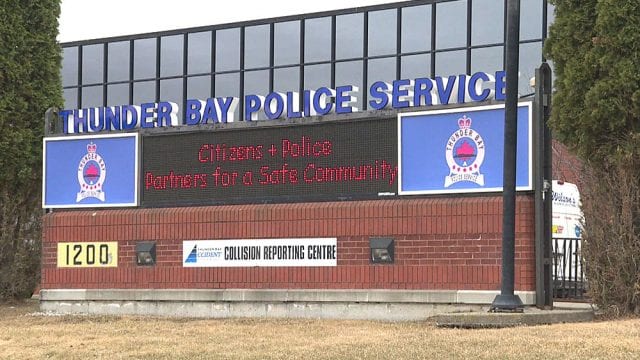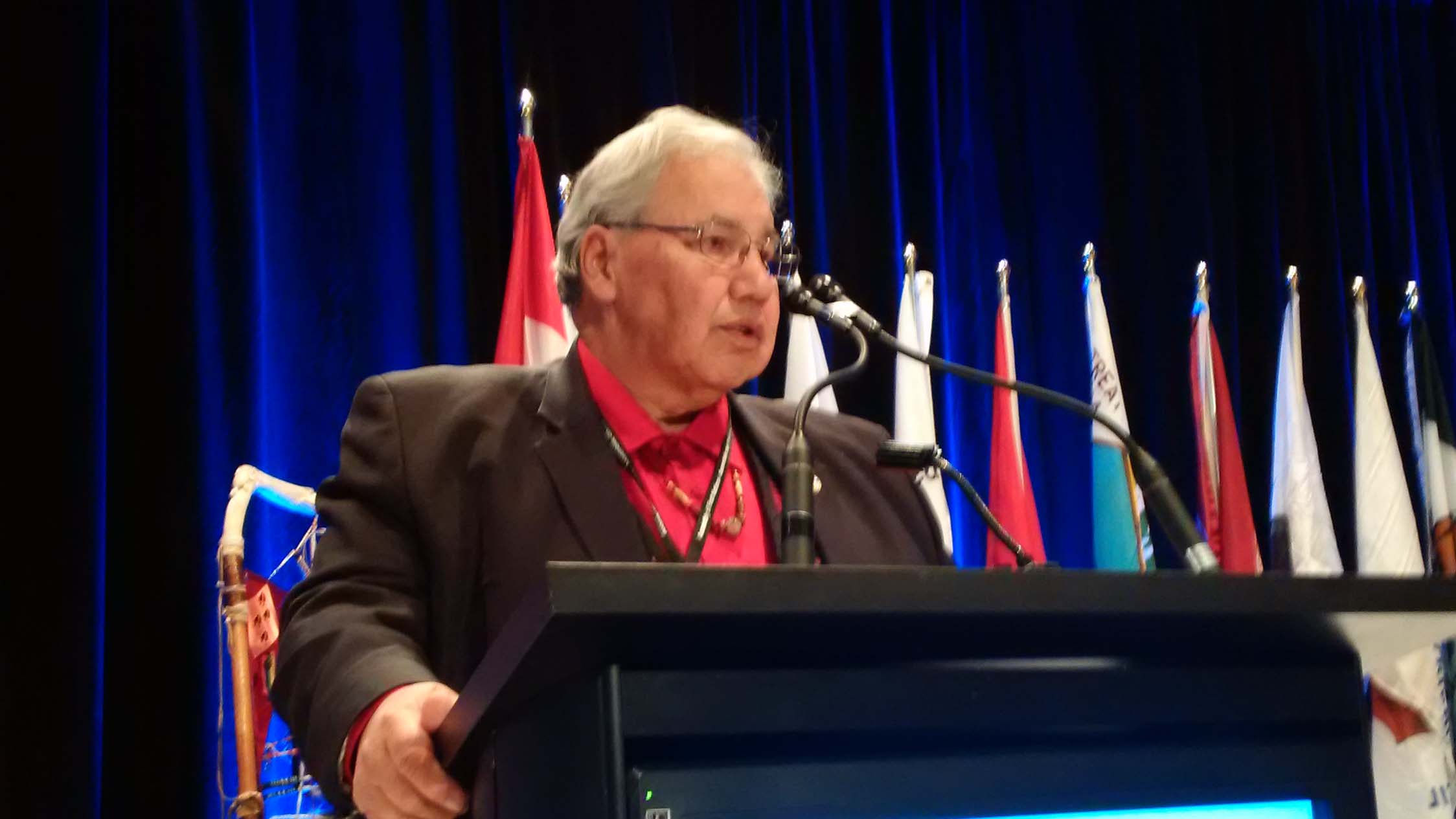
The Thunder Bay Police Services Board has been dissolved and replaced with an administrator as part of an effort to address racism in the northern Ontario city’s municipal police force.
The decision stems from an Ontario Civilian Police Commission (OCPC) report, released Friday, that recommends replacing the board with a single administrator while the board is reconstituted with new members who will be given appropriate training.
Led by First Nation Senator Murray Sinclair, who also led the Truth and Reconciliation Commission, the Thunder Bay Polices Services Board Investigation Final Report recommends the administrator be put in place for one year, with the OCPC retaining authority to extend that period if necessary.
The OCPC has named lawyer Thomas Lockwood as the administrator.
Lockwood was chosen because of his “significant experience in relation to the justice system, policing and public law,” Friday’s news release from the OCPC said.
Lockwood will “temporarily exercise all of the powers of the Board while the majority of the Board is reconstituted in the interim period,” according to Sinclair’s report.
The OCPC calls the TBPS Board’s failure to address concerns brought forward by Indigenous people in the northern Ontario city “an emergency.”
Report says board responsible for force’s failures
The report found “both overt and systemic” racism in the TBPS, echoing the findings of another report on the embattled force released earlier this week by another of Ontario’s independent police watchdogs.
On Wednesday the Office of the Independent Police Review Director (OIPRD) announced it had found systemic racism in the TBPS and recommended several cases involving the deaths of Indigenous people be reopened.
Sinclair’s report said the “high-profile cases of murder and violence are only the tip of the iceberg” of racism in Thunder Bay’s police force.
The “Indigenous community has lost its confidence in the ability and, in many cases, the commitment of the TBPS to protect them.”
The report states Indigenous people view the police service with “suspicion and distrust.”
It lists a number of factors that create that view:
- “A perception that police will minimize, dismiss, or fail to investigate complaints of violence against Indigenous people with diligence, particularly if intoxicants are involved,”
- “Poor communication with Indigenous victims of crime and their families by the TBPS;”
- “A fear that formal complaints by Indigenous individuals directed to the TBPS will result in repercussions against the complainant,”
- “A general failure by TBPS to address recurring categories of crime against Indigenous people in a comprehensive and systemic way.”
“Negative perceptions of the TBPS by the Indigenous community have been exacerbated over the years by incidents in which unmistakable racism is displayed by individuals within the TBPS,” the report continues.
“These have ranged from well-documented public mockery and the dissemination of racist stereotypes, to use of excessive force against and humiliation of Indigenous individuals, to disturbing deaths in custody.”
As a result there is “a strong reluctance on the part of Indigenous victims or witnesses to report crimes, or to avail themselves of the police protection that non-Indigenous people take for granted.”

Senator Murray Sinclair led the investigation into Thunder Bay Police Services Board. File photo.
The report also found Indigenous people had no input into municipal policing, Indigenous people were underrepresented on the police board and throughout the force, and that there was a lack of cultural awareness training.
All of these problems “can be traced back to an absence of leadership from the Board,” the report states.
“The Board has failed to recognize and address the clear and indisputable pattern of violence and systemic racism against Indigenous people in Thunder Bay,” the report states.
Among the report’s few positive observations is the TBPS’s establishment of an executive committee on Aboriginal and Diversity Issues, which advises the police chief on important issues and aims to develop a positive relationship based on trust.
The report calls the committee “promising,” and “evidence of good will” on the force’s part.
“It is clear, however, that in order to seriously and sincerely address the prevalence of racism and systemic racism in Thunder Bay, all those in positions of authority must begin by acknowledging the true scope of the problem, and commit themselves, and the institutions they serve, to making the changes necessary to eradicate all forms of racism.”
Aside from dismissing the board, the report makes 32 other recommendations related to the board’s functions and the provincial Ministry of Community Safety and Correctional Services.
The investigation was launched in July 2017 after leaders from Nishnawbe Aski Nation (NAN), Grand Council Treaty 3 and the Rainy River First Nations expressed concerns about the board’s oversight of policing in Thunder Bay following a series of deaths of Indigenous people in the city.
Responding to the news Friday NAN Grand Chief Alvin Fiddler praised the report’s recommendations but called the appointment of an administrator “unacceptable,” saying Lockwood was “hastily selected without any consultation from the Indigenous community and the Thunder Bay community in general.
“Policing in Thunder Bay presents unique challenges and realities and it is critical that the Administrator is well versed in these issues and has an established rapport with Indigenous people.”
In a written statement released Friday Sinclair said it was “absolutely essential, both as a matter of principle and as evidence of good faith, that the selection and appointment of the proposed Administrator be made in consultation with the Indigenous community whose concerns gave rise to this Investigation.”











With all this happening now, I wonder if I am able to have an investigation for the death of my youngest daughter, Joanne Rody, she passed away Jan. 15,2015. I tried to get the city police to help me since Sept. 2012, while she was alive. I had an interview with a Const. Baxter, of helping me deal with an person, that I was afraid would murder her, which he did. I spoke with the Missing and Murdered First Nations Women and Girls inquiry. It is driving me insane that nothing is being done.
With all this happening now, I wonder if I am able to have an investigation for the death of my youngest daughter, Joanne Rody, she passed away Jan. 15,2015. I tried to get the city police to help me since Sept. 2012, while she was alive. I had an interview with a Const. Baxter, of helping me deal with an person, that I was afraid would murder her, which he did. I spoke with the Missing and Murdered First Nations Women and Girls inquiry. It is driving me insane that nothing is being done.